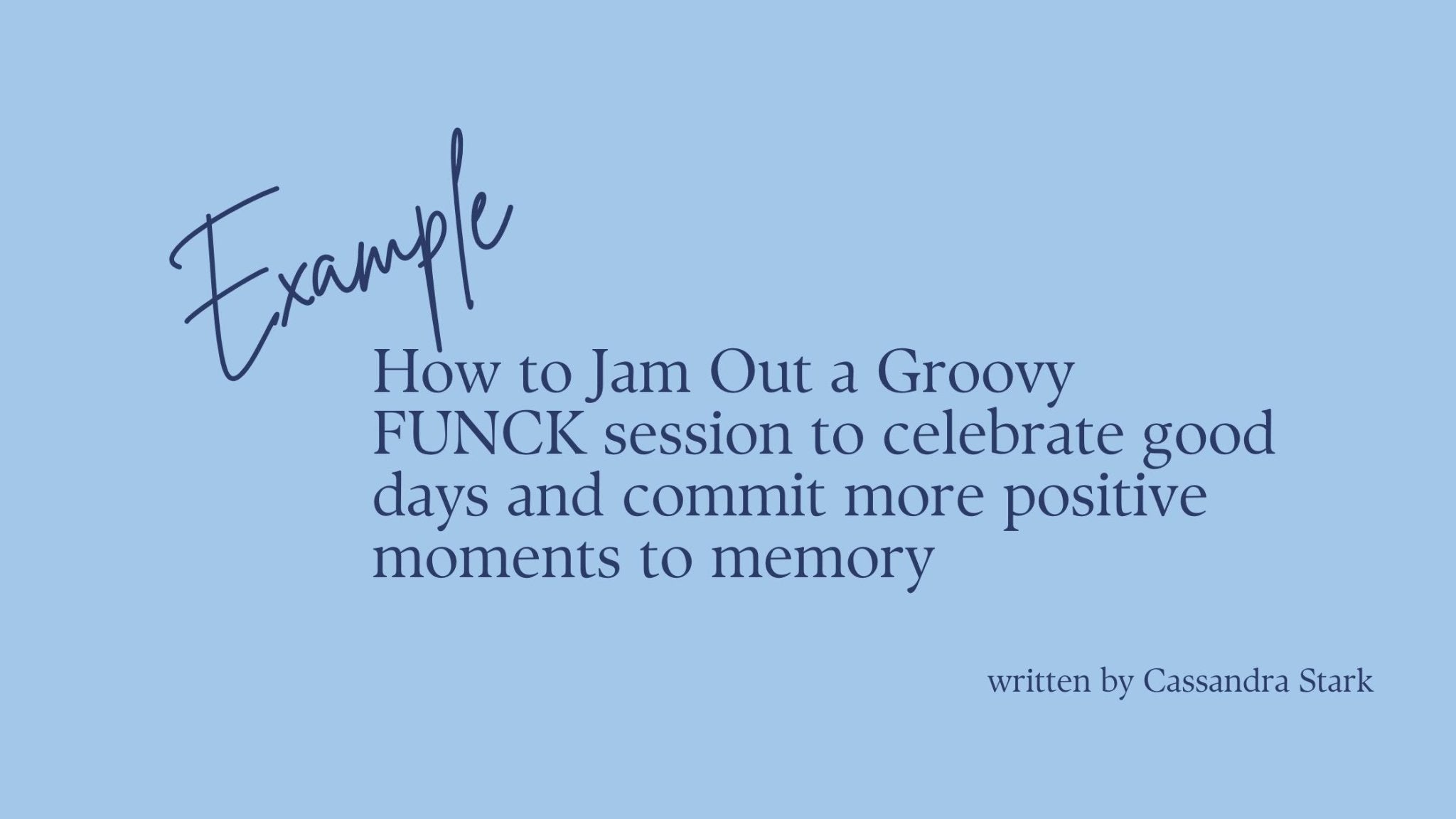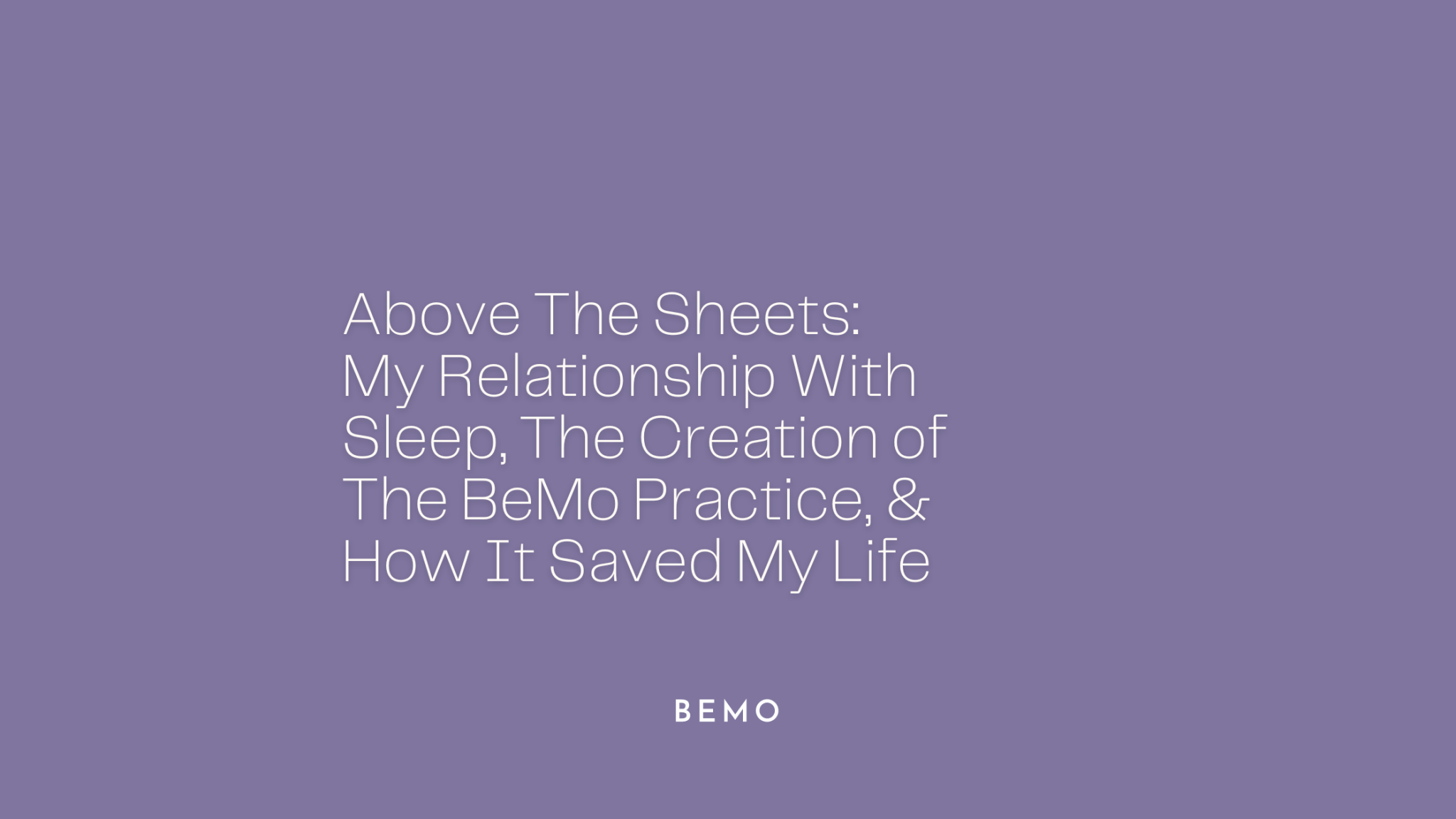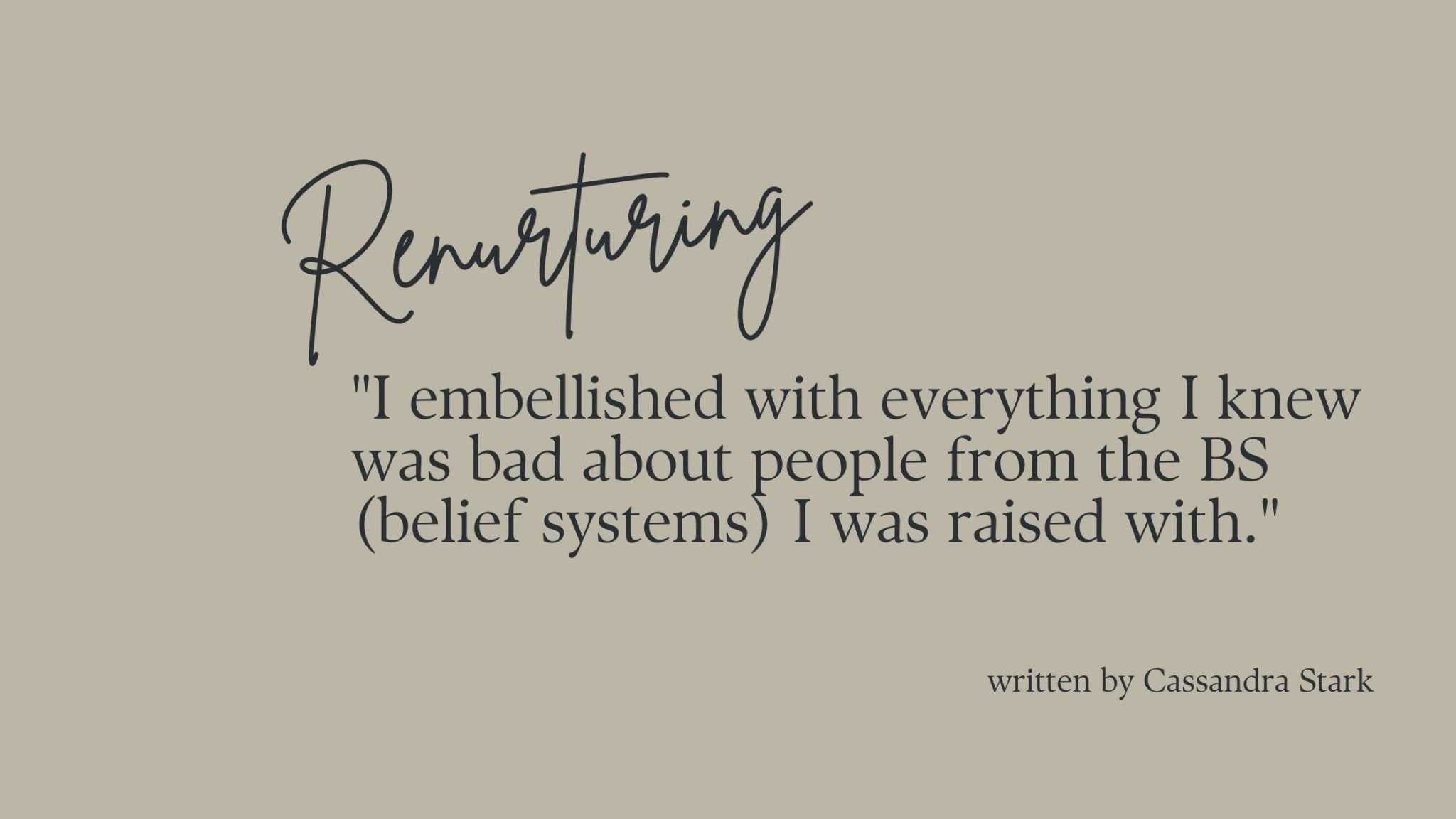Example of Realizing Met Needs on Positive Days
One thing that bothers me most about therapy applications and practices is the underlying “need” to feel “bad” to work through something. The truth is, that isn’t the case.
Let’s drop the BS (belief system) at the door that you have to be down to climb up or that the goal is to be “above” in order to be “better.”
This type of thinking comes from hypervigilance of needing to “earn” your time off, self-care, gifts, or happiness of any kind.
Let’s nope right out of that and practice a little exposure therapy through journaling to experience and remember the best of times and filing these good moments away in your survival satchel.
I love my BeMo Journal. Most nights, you will find me in my dedicated journaling chair, working through something bothering me (often a surprise that doesn’t come to me until it hits the page) or celebrating the joys of the day.
Whether you have the BeMo Basic Journal with a brief intro to the BeMo Practice or the complete BeMo Pocket Guide, you know that FUNCK is introduced as being both a good thing and a bad thing. Hence, FUNCK-E is the term to get down with whether you’re grooving to some amazing funk or feeling a little funky.
Today, we will get in the groove with a good day and get down with the positive FUNCK *strike a dance pose* we’re feeling.
Here’s How to Jam Out a Groovy FUNCK session:
F
I feel fantastic when I really tick all those boxes in my day – not the to-do list kind of boxes, but the times when I can be really proud of myself for being focused at work and still being able to disconnect, be in the moment, and experience mindfulness with something I really looked forward to.
I feel proud of myself for practicing a greater focus and knowing that I can leave things undone – important things will be important even when I return to them tomorrow. It is ok to experience something other than struggle (something that has been hard for me, so this is huge).
I feel happy and a little silly because I wrapped up work and chose to go sledding with my puppy! We had a blast.
U
I am so proud of you! This is awesome. You really are making huge strides in how you show up for yourself. This is amazing. I am glad you got out to have some good, old-fashioned fun. It sounds like a blast.
N
Positive Focus: Ask yourself to recap what needs were MET for you today. Be specific.
My need for fun, laughter, entropy and changes that bring more joy to my life were all met by my ability to be reasonable with the expectations I have with myself and to remember from the work I have been doing that I know I feel much better when I am able to focus and then let go. I showed up for myself by challenging myself to do it differently and allowing myself to experience change safely by taking a chance to change the narrative for myself.
C
Positive Focus: Ask yourself how you can continue meeting these needs. Remember, this is not a to-do list. This is a list of choices, cares, and cans!
To continue meeting these needs, I can continue to reflect in my BeMo Practice on what choices I make that allow me to feel happy, joyful, and proud of myself.
I can remember to allow myself grace when some days seem too hard.
I can create a list of silly, different things to do at times when I need a change or to be reminded that life is what you make of it. I can put that list in a bag and randomly choose from it.
I can continue to journal on good days and bad days because, in either case, I end with positivity and create more relief and hopeful feelings in my life.
K
I know that not every day has to be perfect and that I have been incorrectly defining my “need” as a need for perfection because of so many experiences growing up.
I know it is ok to feel uncomfortable and to have bad days, that I have the tools I need to feel safe and calm with tough feelings.
I know I can trust life to change, including for the best!
I know I can continue to come here each night and work through it, and that work will help me find far more days to celebrate meeting needs and feeling positive.
I know I feel so proud of myself for the work I am doing.
I know it is okay to trust a good day and memorialize it here.
I know I no longer have to feel the struggle in order to prove that I am overcoming something.
Why recapping met needs works
We are born with an instinct to learn how to survive. We absorb everything about our environment for the first eight years of life before we start to feel confidence (or lack of confidence) in our capability to be more independent.
Recapping met needs allows us to practice reprogramming negative belief systems about our experience with survival. As a result, our automatic behaviors begin to change. We can broaden our coping mechanisms with a greater sense of trust.
For someone with an Avoidant attachment style, this is a greater ability to trust letting others in without feeling susceptible. For someone with an Anxious attachment style, this is the ability to let yourself feel vulnerable without that experience seeming volatile. For someone who is Disorganized, you’ll experience either or, likely, both.
Allow yourself to work through a greater understanding of needs as well as an understanding of how you are meeting these needs for yourself to reprogram reactive behaviors. The more you trust yourself to let others in or show up for yourself, the less reactive you’ll be to perceived fear and unsafe situations in the future.
Practicing Purposeful Positives
Understanding why things are different and how you grow, change, and expand is essential in solidifying good memories and overcoming bad days.
To continue beyond your FUNCK pages and move into your Positives List, you can practice purposeful positives to recognize your growth on good and bad days. Read more about how to Practice Purposeful Positives here.









Leave a comment